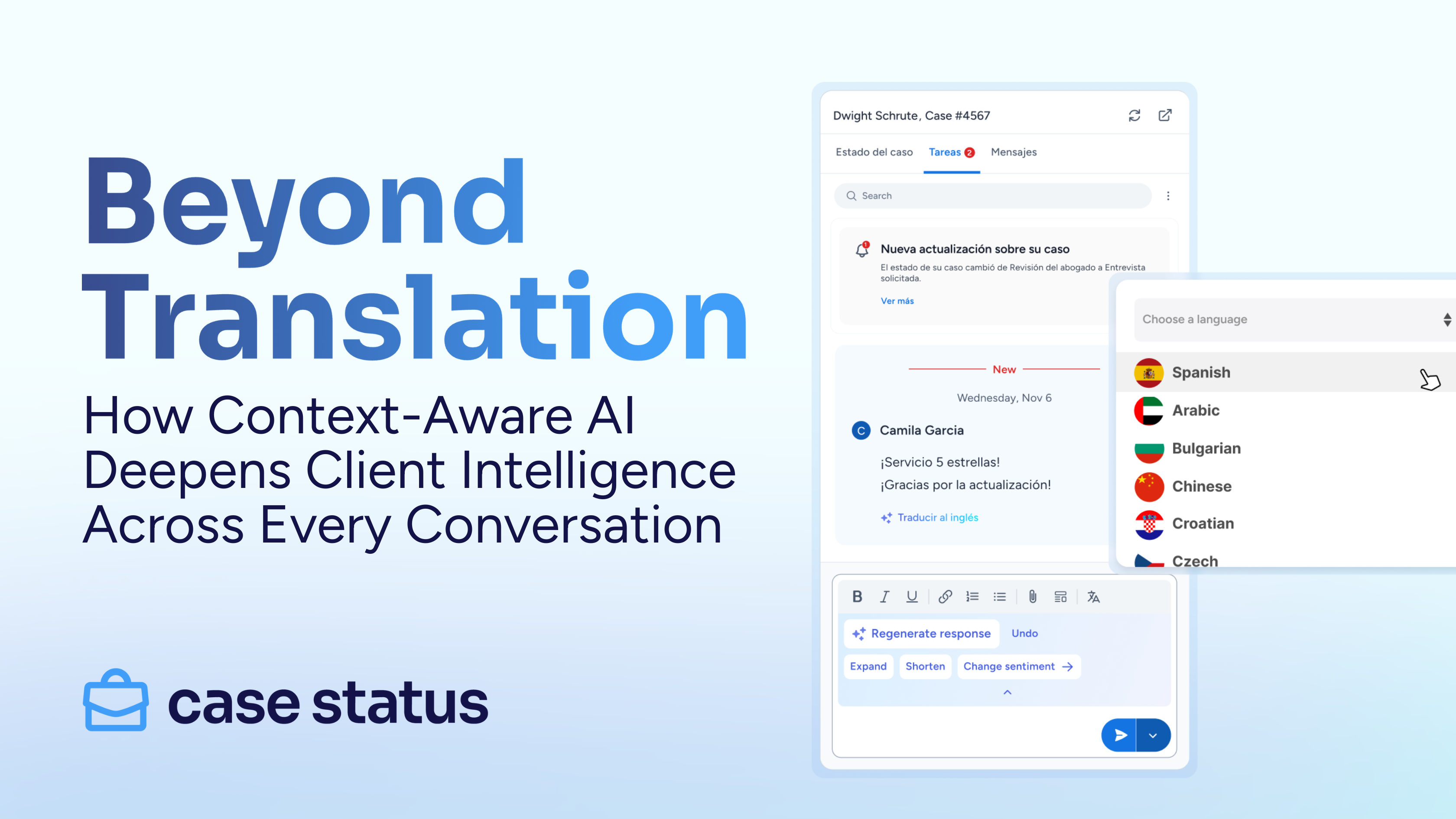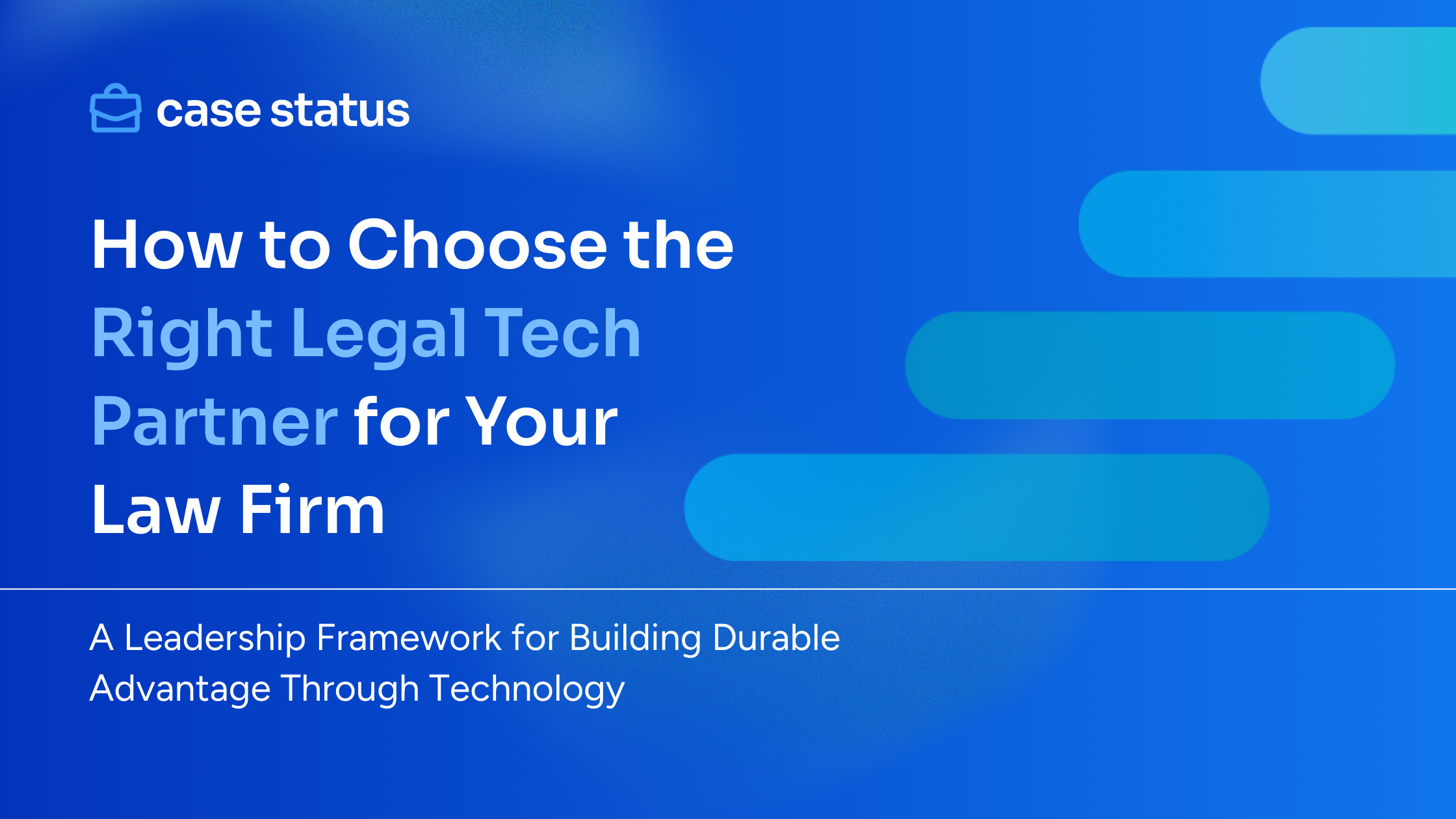
When you’re learning about the best legal software, one factor you’ll likely find yourself questioning the most is the costs and benefits of legal software solutions. How Much Does Legal Software Cost? How much should you pay for legal software? What is the right price for your firm?
The more you understand how legal software programs can impact your business for the better, the easier it is to judge whether a company’s cost is a worthwhile investment.
In this guide, we’ll explore what legal tech is, what it can do for your law firm, and how legal software companies tend to price their products.

What Is Legal Tech?
Legal tech is a collection of software that lawyers use to make running their law firms easier. Automation is a key element in the best law firm software as it makes typically time-consuming tasks instantaneous.
There is a wide variety of legal software out there. Some tech is built with a single purpose in mind while others are programs equipped with a variety of features to make law firm management more efficient.
By reducing strain on staff, legal tech helps maximize a law firm’s talent and improve its service to its clients. When you’re able to automate all of the repetitive, necessary tasks in your firm, you have more time to spend doing meaningful work.
Examples of Legal Technology
There are dozens of legal technology solutions on the market. From messaging systems to accounting software, the legal software industry is rapidly growing.
This is a good thing — it means that lawyers are finally being given more options when it comes to managing their firms. We all know that historically speaking, the legal sector has been one of the slowest to adopt new technology. This is a disadvantage for clients and attorneys alike.
In our digital era, a law firm simply can’t afford to not embrace technology, especially firms that want to grow quickly. Handling everything on your own takes too much time, and it limits your firm’s potential for growth.
The more clients you have, the more time it takes to manage all their accounts. Running a legal practice without the right technology is another job.
Legal software saves you time, money, and a lot of stress. It makes your business more efficient, agile, and responsive to its clients’ needs.
To unlock your firm’s greatest potential, there are two examples of legal technology you should focus on.
Legal Client App
Imagine if you could stop constantly writing down notes, juggling a perpetually full inbox, and making dozens of phone calls between your work. Is it really possible? Yes! A legal client app is the one-stop solution for law firm communication, and Case Status is the best one available.
With real-time translation in 138 languages, automated messaging, calendar reminders, and integrations with the industry’s leading law firm management software, it revolutionizes the lawyer-client relationship.
The purpose of a legal client app is to enhance rather than hand-off communication. A lot of attorneys are skeptical about automation because they think it means letting a computer do their job.
Think of it this way: you’re using automation to handle the easy, essential tasks that take up the most time. By doing so, you’re creating more time to focus on meaningful interactions and legal counsel that benefit your clients.
The app is great for putting important legal information at a client’s fingertips, but it also benefits the firm by lowering the number of calls, messages, and requests it has to field each day.
The end result? Higher client satisfaction, more productive billable hours, and greater work-life balance for you and your staff.
CRM
A CRM stands for “Client Relationship Management” software, and it’s an invaluable tool for any modern law firm. Instead of sorting through leads and managing cases on your own, a CRM puts everything in one place and keeps it updated in real-time.
Some of the most popular law firm CRMs are Clio, CasePEER, Litify, and MerusCase. Luckily, Case Status is an integration partner to all of these. That means you can pair your white-label client portal through our app with your CRM of choice to create the most comprehensive suite of legal management features.
Customization is built into any good CRM. Legal software companies recognize that each firm has its own needs, and they need flexible technology that can evolve with their practice.
A CRM is a cloud-based solution that can help your practice manage billing, marketing, leads, cases, appointments, calendaring, and email all in one place. Your practice will never have to second-guess whether a task was complete, worry about duplicate entries in its data, or struggle to stay on top of a case file ever again.
What Does Legal Software Do?
A legal software can do whatever you need. Whether that’s handling your billing and invoicing, offering e-payment solutions to clients, or organizing large volumes of legal data, legal software is optimized for your convenience.
A CRM is the de-facto solution for legal management software thanks to its versatility. It’s packed with productivity tools for lawyers that make life easier, like time tracking and billing automation.
Case Status is a legal client portal and communication tool. It includes built-in messaging and CRM integrations to sync your existing clientele with its own platform. Anything that happens in Case Status will automatically update in your CRM, so you’ll never have to worry about catching up on client details again.
Our app can even help you perform a bit of marketing research automatically. Guaranteed touchpoints prompt clients to rate their experience with your practice at specific intervals. This gives your firm a deeper understanding of where it’s performing the best and where it can improve each client;s experience.
How Much Does Legal Software Cost?
Legal software pricing runs on a spectrum. The number of accounts you have to manage and the number of features within a software will influence how much you need to pay.
Most legal software is offered as Software as a Service (SaaS), so you pay for a monthly or annual subscription to maintain your access. This flexibility is enhanced with varying price points to customize your experience. You may realize that you only need the most basic features of a CRM, which means you can pay a lower price.
Basic and Premium subscriptions will both offer good benefits to your firm, but the level of support and features you can access will vary by price.
To get the best deal, it’s good to compare software providers and their offerings. Think about how much your firm will get out of a subscription, and consider taking advantage of the free trials and special annual subscription discounts many companies offer.
Why Is Legal Technology Important?
Legal technology ensures that law firms are able to continually meet the needs of their clients in a rapidly evolving world. Today’s clients are empowered by choice, and they will want to work with firms that have the technology in place to deliver outstanding customer service.
To keep delighting your customers, you need tools that not only enhance communication but off-load the time-consuming tasks that distract you from your cases.
If you’re looking for an easy, affordable client app for your practice, schedule a meeting with us to learn more about Case Status.



.png)